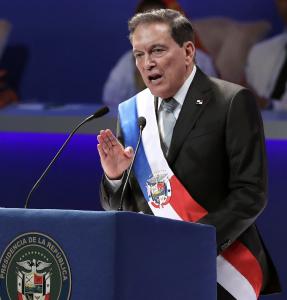Politics in Panama can, at times, seem overwhelming to both outsiders and Panamanians, but it doesn’t have to be. Panama is a country with a rich political history and a vibrant democracy, and despite many flaws, is one of the reasons Panama is so stable and appealing to foreigners and foreign investment. The country has a presidential system of government, with the president serving as both head of state and head of government. In this post, we’ll take a closer look at how elections in Panama work, the structure of the local government, the current ruling party, and the country’s relationship with the United States and Canada.
The Panamanian Government Structure
Panama’s government structure is divided into three branches: the executive, legislative, and judicial. The executive branch is led by the president, who is elected for a five-year term. The president appoints a cabinet of ministers who oversee different aspects of the government, such as finance, education, and foreign affairs. The legislative branch is made up of a unicameral National Assembly, which is responsible for passing laws and approving the national budget. The National Assembly is made up of 71 members, who are elected for five-year terms. The judicial branch is independent and is responsible for interpreting the constitution and enforcing the law.
Currently, the ruling party in Panama is the Democratic Revolutionary Party (PRD). The party has a long history in Panamanian politics, having been founded in 1979. The PRD is a center-left party that focuses on social welfare programs and economic development. The current president of Panama is Laurentino Cortizo, who was elected in May 2019. Cortizo is a member of the PRD and won the election with 33.27% of the vote, defeating his closest rival, Rómulo Roux, who received 31.07% of the vote. Cortizo has promised to focus on fighting corruption, improving education, and creating jobs.
Elections in Panama
Politics in Panama are anchored by regular national, regional, and local elections like any other democracy. Elections in Panama are held every five years and are overseen by the Electoral Tribunal of Panama. The Electoral Tribunal is an independent body that is responsible for organizing and supervising the election process. The voting system used in Panama is a modified form of proportional representation, which means that political parties are awarded seats in the National Assembly based on the proportion of votes they receive. For example, if a party receives 33% of the votes, they will receive 33% of the seats in the National Assembly.
Panama is known for having a strong and vibrant democracy. The country has held free and fair elections since the end of military rule in 1989. The country’s democratic institutions are respected and have been praised by international organizations like the United Nations and the Organization of American States. One of the reasons why Panama’s democracy is so successful is because of its commitment to transparency and accountability. The government has taken steps to combat corruption and promote transparency, such as passing laws that require public officials to disclose their assets and income.
The Peaceful Nature of Politics in Panama
Another important aspect of politics in Panama is its peaceful nature, despite some very famous times of turmoil. The country has a long history of political stability and has not experienced any major political violence in recent decades. This stability has helped to promote economic growth and attract foreign investment. Panama has a close relationship with the United States and Canada. The United States has played an important role in Panama’s history, having built the Panama Canal and maintained a military presence in the country for many years.
Today, the United States and Panama have a strong economic relationship, with the United States being Panama’s largest trading partner. Canada also has a strong relationship with Panama, particularly in the areas of trade and investment. The two countries signed a free trade agreement in 2013, which has helped to promote economic growth and create jobs in both countries. This relationship helps to reinforce Panama’s commitment to democracy and peaceful politics. It also creates a very friendly and positive culture for foreign investment and for people to relocate to Panama.
Currently, there are no major political issues facing relationships between Panama and its North American neighbors, and the country is considered to be a beacon of peace in Latin America. The democratic system has been able to effectively address social problems, promote economic growth, and ensure human rights are respected. This peaceful atmosphere makes Panama an attractive destination for foreign investment and also makes it a great place to live. The long-term strategy in these relations is to continue strengthening the ties between Panama and its neighbors through economic cooperation, military assistance, and cultural exchange.
In conclusion, politics in Panama and Panama is structured around a presidential system, with the president serving as both head of state and head of government. The country’s democracy is strong and vibrant, with free and fair elections held every five years. The ruling party is the Democratic Revolutionary Party, which has been in power since 2009. To learn more about politics in Panama or if you have any questions about investing in Panama or relocating to Panama, contact us here.
